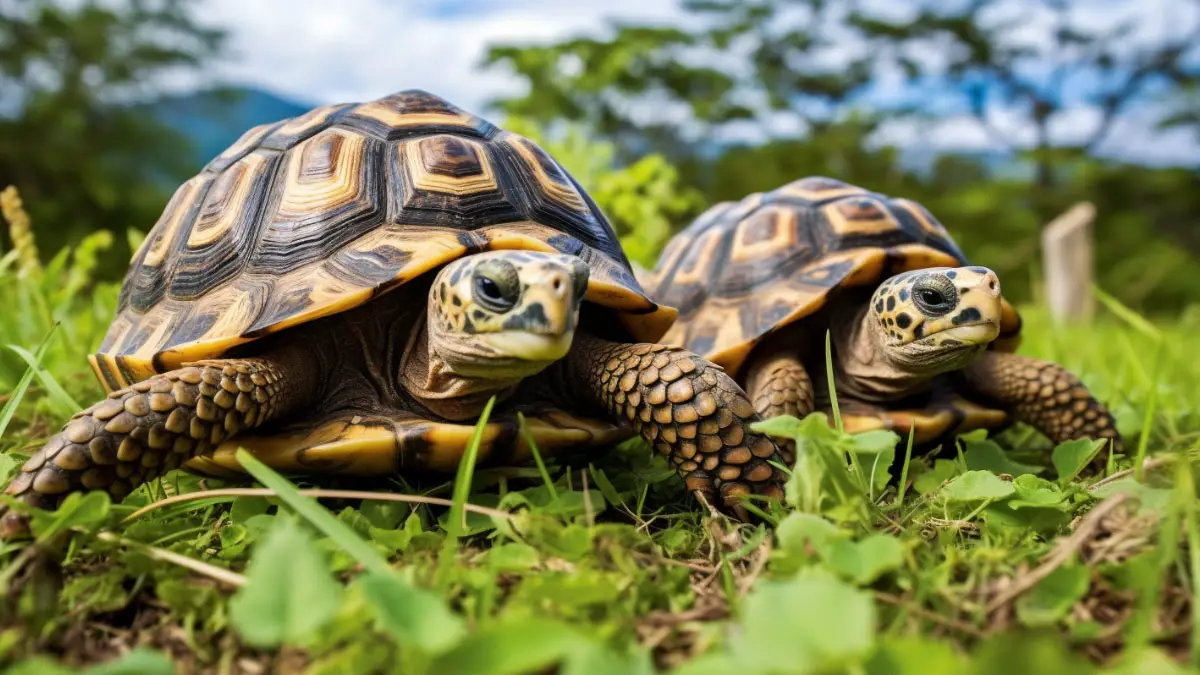How Much Does A Tortoise Cost? A Complete Guide
Owning a tortoise can be a fascinating and rewarding experience, but it’s critical to understand the costs involved before taking the plunge. Whether you’re considering getting a tortoise as a pet or are simply curious about the financial implications, this article will provide you with all the information.
How much does a tortoise cost? The answer depends on various factors, such as the tortoise’s species, age, size, and rarity. Generally, tortoise costs range between $300- $2,000. This price does not entail additional costs such as enclosure, food, vet, and electrical bills.
This comprehensive guide will explore the factors that affect the cost of a tortoise. It will provide you with a complete breakdown of the expenses of owning one. Let’s dive in.
How Much Does A Tortoise Cost? An Overview
Contents
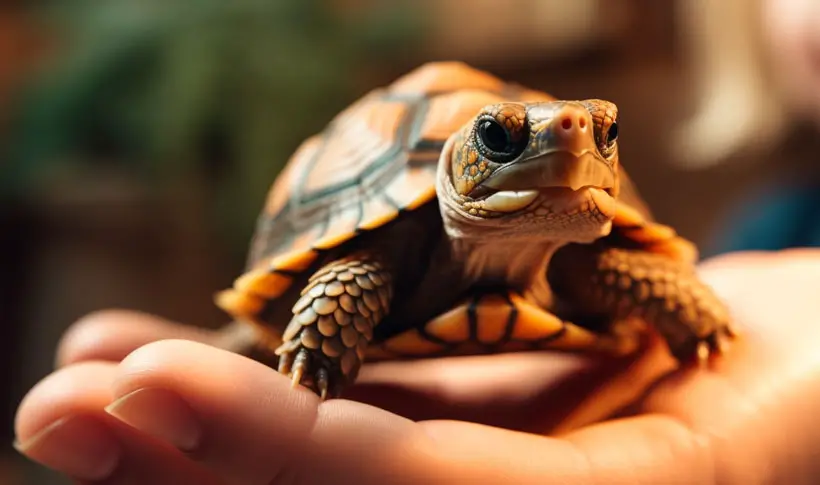
Here is a table showing an overview of the different prices of various tortoise breeds.
| Tortoise Breed | Adult Tortoise Average Price | Baby Tortoise Average Price |
|---|---|---|
| Greek Tortoise/ Spur-Thighed Tortoise | $150 – $300 | $80 – $150 |
| Russian Tortoise/Horsefield Tortoise | $100 – $400 | $50 – $200 |
| Hermann’s Tortoise | $200 – $500 | $100 – $250 |
| Red-Footed Tortoise | $200 – $400 | $100 – $200 |
| Marginated Tortoise | $200- $500 | $100 |
| Leopard Tortoise | $400 – $800 | $150 – $300 |
| Sulcata Tortoise/African Spurred Tortoise | $500 – $2,000 | $150 – $300 |
| Pancake Tortoise | $600- $1,000 | $300 – $500 |
| Egyptian Tortoise | $1,300 – $1,500 | $900 – $1,050 |
| Galapagos Tortoise | $20,000 – $60,000 | $3,000 – $9,000 |
| Aldabra Tortoise | $ 20,000 | $300 – $1,300 |
| Indian Star Tortoise | $2,000 – $4,000 | $250 – $400 |
Factors That Affect The Cost Of A Tortoise
Prices can range from relatively affordable to quite expensive, so it’s crucial to investigate these factors to understand the price variations.
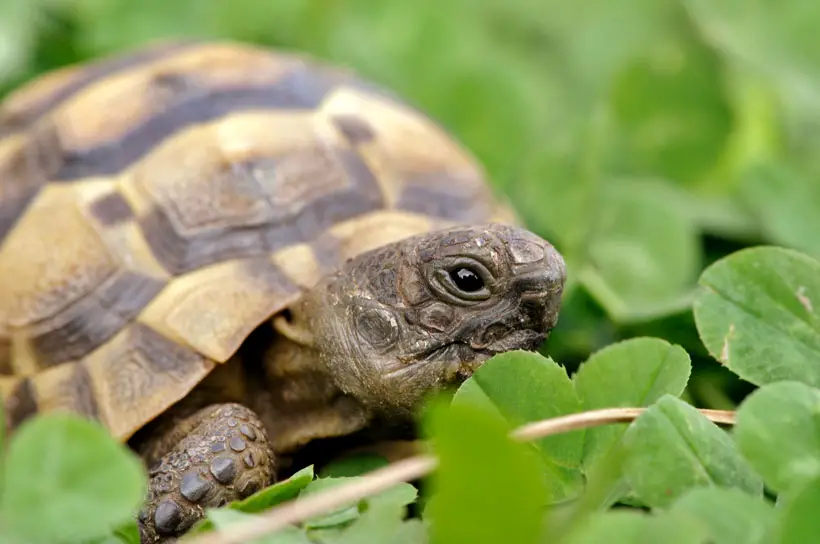
Species
As shown in the table above, the prices of different tortoise species vary. This is due to factors such as scarcity and availability.
For example, the Greek and Russian Tortoises are more common and affordable, whereas rarer species, such as the Galapagos Tortoise, can be extremely expensive.
Additionally, certain species might have specific care requirements or be subject to legal restrictions, further influencing their cost.
Age
Baby tortoises are typically less expensive than adult tortoises. This is because raising baby tortoises to adulthood takes more time and care, and some uncertainty is involved in their growth and development.
Adult tortoises, on the other hand, are typically larger, more established, and may be better suited for breeding purposes, which can increase their price.
Size
Larger tortoises, which have had more time to grow and require larger enclosures, are usually more expensive than smaller ones. A tortoise’s size also influences its age, as larger tortoises are typically older.
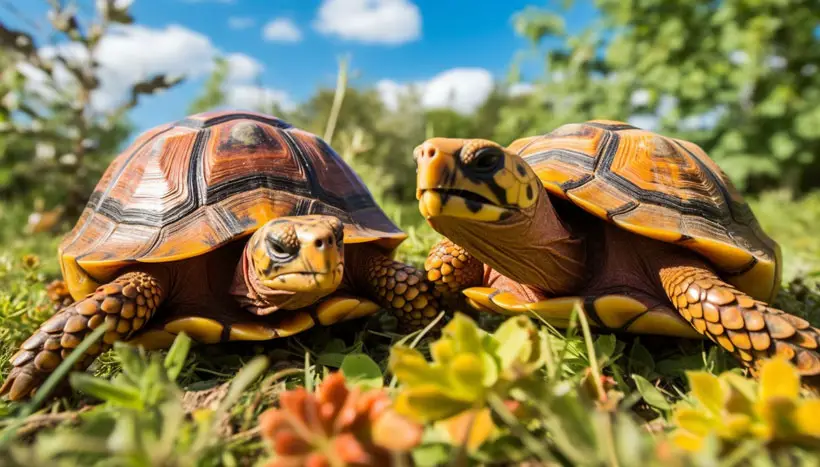
Rarity
Species that are difficult to find in the pet trade or have limited populations in the wild tend to be more expensive. This is frequently the case with endangered or critically endangered tortoise species that require conservation efforts.
The rarity factor reflects the difficulties and costs involved in breeding and maintaining populations of these species, resulting in higher market prices.
Breeder
Reputable breeders who prioritize their tortoises’ health, genetics, and care frequently charge higher prices. They devote time and resources to breeding healthy, well-started tortoises that have been properly socialized and are ready for a new home.
Reputable breeders or pet stores often provide documentation of veterinary examinations and any necessary vaccinations or treatments. This can add to the overall cost but ensure the well-being of the tortoise.
Buying a tortoise from a reputable breeder may give you additional peace of mind about its health and the accuracy of its background information.
Additional Costing Areas For Tortoises
Owning a tortoise entails more than the initial price. There are several other expenses to consider to provide a comfortable and healthy environment for your new reptilian companion, including:
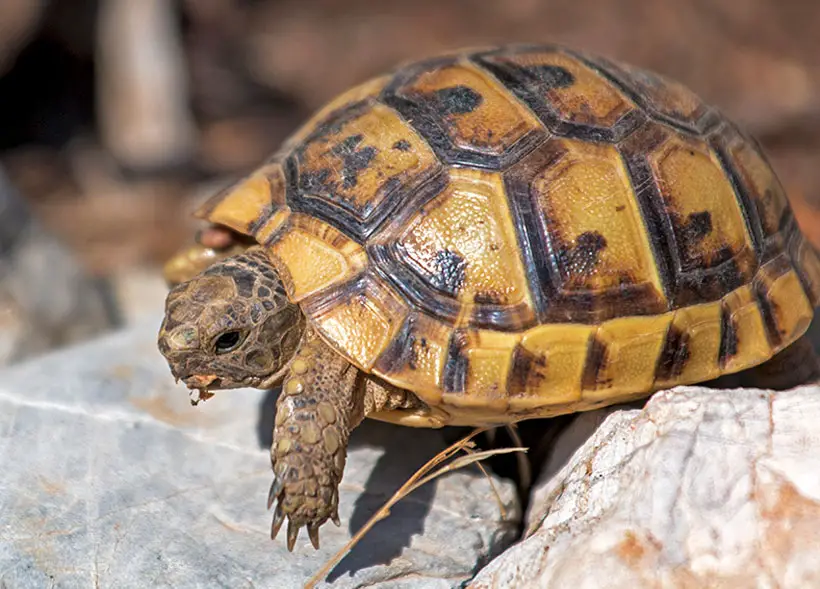
Enclosure And Habitat
It is critical to provide a suitable enclosure and habitat for your tortoise for its overall well-being. The enclosure cost will be determined by factors such as the tortoise’s size, the desired habitat type (indoor or outdoor), and the materials used.
- Indoor enclosures range from simple plastic or glass tanks to customized wooden or PVC enclosures.
- Outdoor enclosures include building a safe, predator-proof pen or designing a tortoise-friendly garden area.
- So the cost of an enclosure varies greatly, but as a rough estimate, you can expect to spend between $100 and $150.
- Also, ensuring that the enclosure provides adequate space for your tortoise to roam and bask is important. Thus, A typical platform goes for around $5 – $20.
The substrate will also be an important aspect of the enclosure.
- Substrates include reptile carpet, tile, sterilized topsoil, coconut coir, orchid bark, and cypress mulch.
- The cost of the substrate varies depending on the type and quantity required.
- Loose substrates are typically sold in bags or bulk, with prices ranging from $10 to $30 or more, depending on the brand and quantity.
Food And Diet
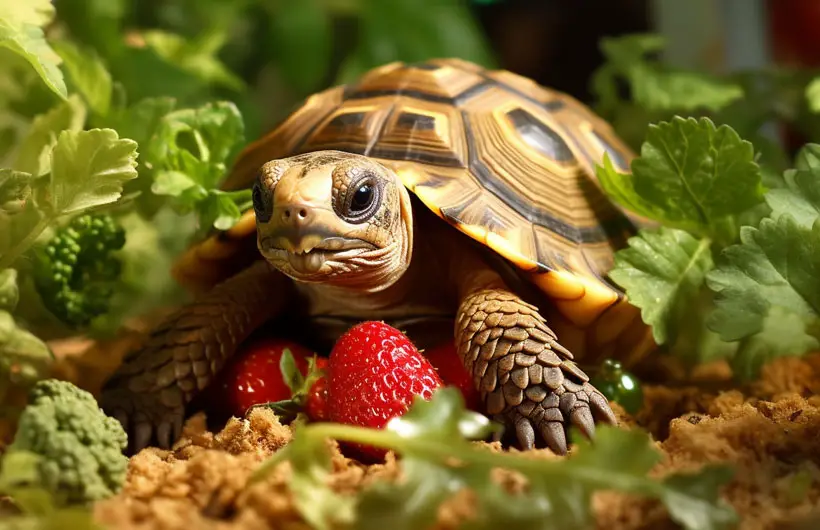
Tortoises have specific dietary requirements that must be met for optimal health. Their diet consists mostly of leafy greens, vegetables, and occasionally fruits.
- The cost of food will vary depending on the species, the availability of specific items in your area, and whether you provide fresh or commercially prepared tortoise food.
- Fresh vegetables and greens can be purchased at local grocery stores or grown in a tortoise-friendly garden.
- Some tortoise keepers supplement their diet with calcium supplements or tortoise pellets.
- The cost of food will vary depending on your tortoise’s size, the variety and quality of food items, and any supplements you choose to provide. You can spend $20 to $50 monthly on tortoise food.
Veterinary Care
Routine check-ups can help identify underlying health issues and provide preventive care.
- The cost of veterinary care is determined by factors such as your location, the specific services required, and any necessary medications or treatments.
- Veterinary care costs between $100 and $200 per year.
- However, it is important to note that the cost may rise if your tortoise requires additional medical treatment or if any health issues arise.
To help mitigate unexpected veterinary expenses, setting aside an emergency fund or considering obtaining pet insurance designed specifically for reptiles is prudent.
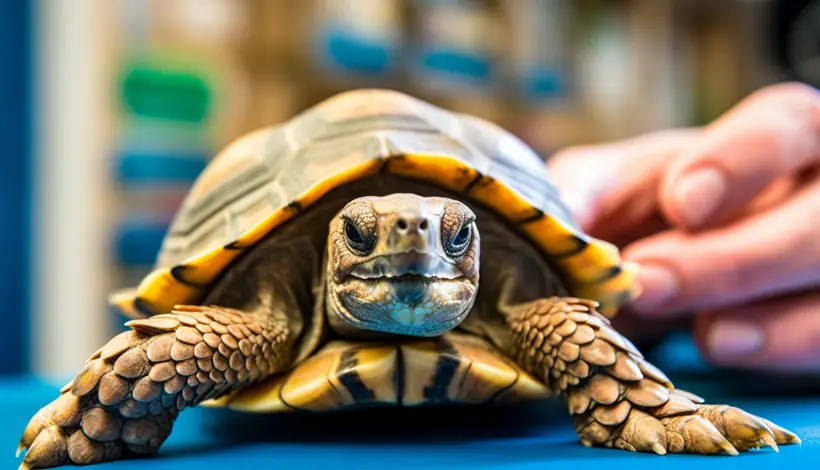
Heating and Lighting Costs
Tortoises require specific temperature ranges to thrive, frequently necessitating heating equipment.
- This can include heat lamps, ceramic heat emitters, and under-tank heaters.
- The price of these heating devices varies depending on the type, size, and brand, but they generally go for around $11-$50.
- Additionally, reptile-specific thermostats may be required to regulate and maintain the proper temperatures within the enclosure. Therefore, depending on the thermostat’s make and control levels, you must spend an additional $15-$60.
- And to reduce long-term electrical costs, choose energy-efficient options.
- Additionally, your tortoise needs UVB lighting, which helps them metabolize calcium and prevent metabolic bone disease.
- Depending on the brand and type, UV lamps can range from $50 to $80 or more. For a standard bulb, it costs around $10.
Grooming Supplies
Tortoises, such as shell cleaning or beak trimming, may occasionally require grooming.
- Grooming supplies may include specialized brushes, non-toxic cleaning solutions, and tools for trimming the beak or nails.
- These grooming products range in price from $15 to $25.
Food Dishes and Hides
Providing food and water dishes within the tortoise’s enclosure is essential for their well-being.
- Food dishes range from about $5 – $20.
Hides or shelters, however, allow the tortoise to retreat and feel secure.
- The hides can vary depending on the materials and designs chosen but generally cost about $10-$40.
Electrical Bills
Using heating and lighting equipment for the tortoise’s enclosure will contribute to increased electrical consumption. This may reflect in your monthly electrical bills.
- These bills are generally low and range from $10 – $13.
Water Bills
Maintaining appropriate humidity levels within the tortoise’s enclosure is crucial for their health, particularly for species that require higher humidity.
- Some tortoise owners may utilize humidifiers or misting systems to achieve and maintain proper humidity. These go for about $20 – $75.
- Other water bills are as low as $10.
Insurance
While not a mandatory expense, some tortoise owners obtain pet insurance designed for reptiles.
- The average cost of insurance premiums is about $4 for a $200-$300 tortoise.
Where Can I Buy Tortoises?
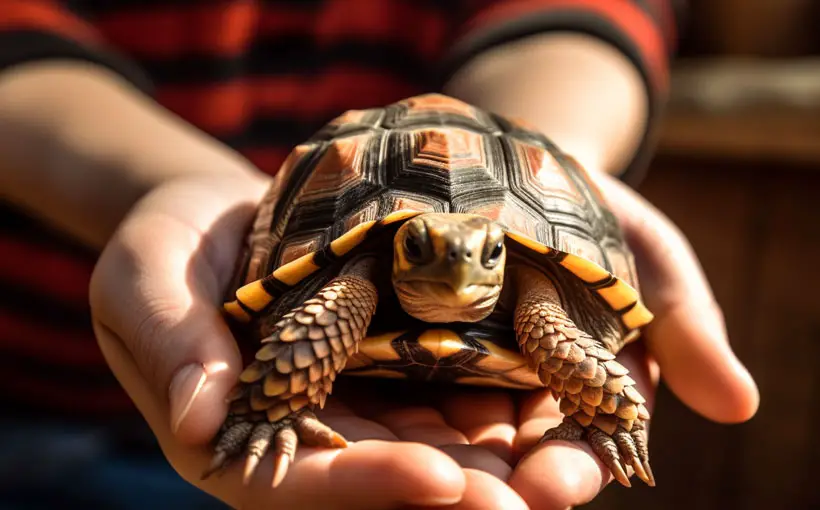
Here are some common places where you can buy tortoises:
Reptile Specialty Stores
These stores are dedicated to caring for and selling various reptiles, including tortoises. Reputable reptile stores typically prioritize the health and well-being of their animals, ensuring they come from reliable sources.
Reptile Expos and Trade Shows
These are gatherings of reptile enthusiasts, breeders, and vendors to display and sell their reptiles, including tortoises. These events feature a wide range of tortoise species, often with multiple breeders and sellers in attendance.
Attending these expos allows you to interact directly with breeders, ask questions, and find unique or rare tortoise species. However, before making a purchase, it is critical to investigate the reputation and credibility of the vendors.
Online Reptile Breeders and Retailers
The internet has made locating and purchasing tortoises simple. Many reptile breeders and retailers have websites or online marketplaces where you can browse and select the tortoise species you want.
Look for breeders who have positive reviews, open information about their breeding practices, and clear communication about shipping and handling procedures.
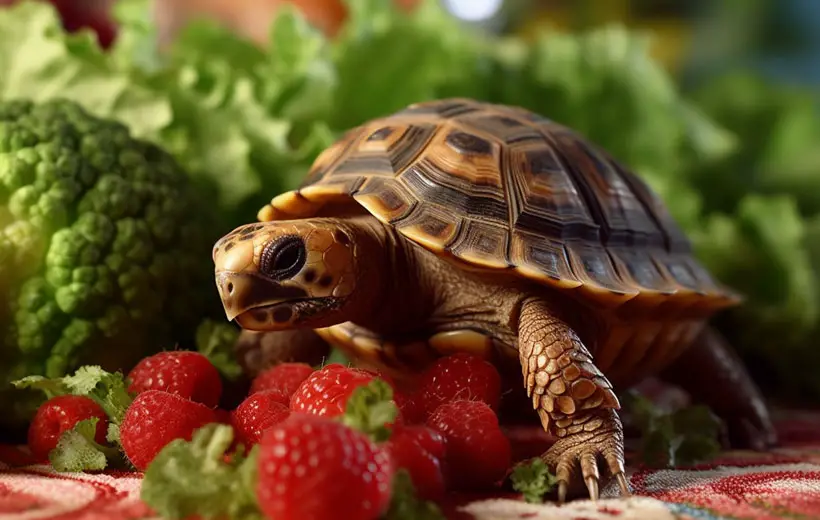
Local Reptile Rescues and Shelters
Consider adopting a tortoise in need from a local reptile rescue or shelter. These organizations frequently have tortoises that have been surrendered or rescued and need a loving and caring home.
Adoption fees from rescues are generally lower than purchasing prices and can vary depending on the organization and the tortoise’s needs. Adoption also allows you to give a tortoise a second chance and contribute to the vital work of rescue organizations.
FAQs
Here are other related questions about the cost of a tortoise.
Yes, many countries have legal restrictions on owning certain tortoise species. These restrictions are intended to protect endangered tortoise species and ensure their conservation.
These tortoise species require permits or licenses to own. Before purchasing a tortoise, it is critical to research and understand your area’s legal requirements and restrictions.
Before purchasing a tortoise, determine whether you have enough space for an enclosure, the ability to provide proper heating and lighting, and the time to devote to their daily care and maintenance.
Yes, the cost of tortoises varies depending on their age and size. Younger tortoises are typically less expensive, whereas larger tortoises may be more expensive due to their increased age and care requirements. Pricing can also be affected by factors such as species and rarity.
Conclusion
Getting a tortoise as a pet necessitates careful consideration of several factors, including cost. While the initial purchase price of a tortoise can vary significantly depending on species and age, it is important to recognize that the expenses extend far beyond the acquisition itself.
Throughout this guide, we’ve looked at the factors that affect the overall cost of owning a tortoise. We investigated the costs, including housing, heating and lighting, substrate, etc., and other necessary supplies. So, providing suitable habitats, proper nutrition, and regular veterinary care is critical for their health and well-being.

